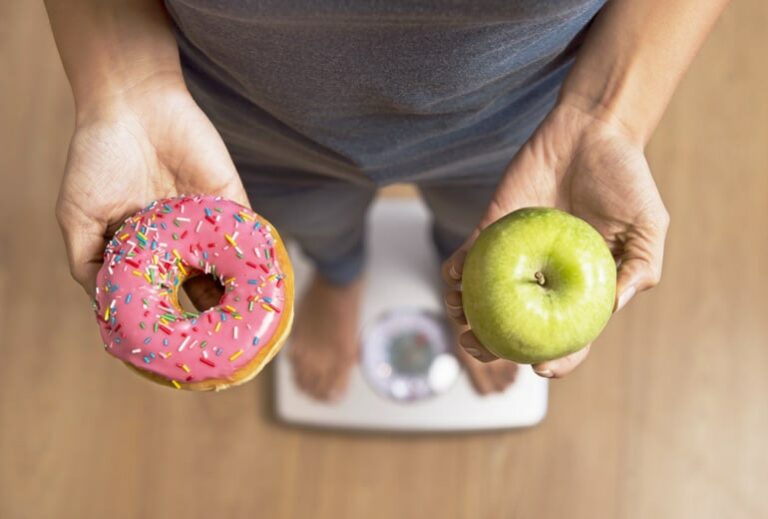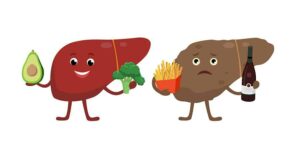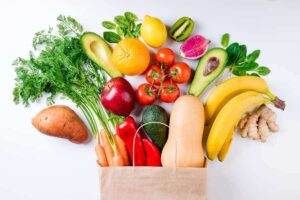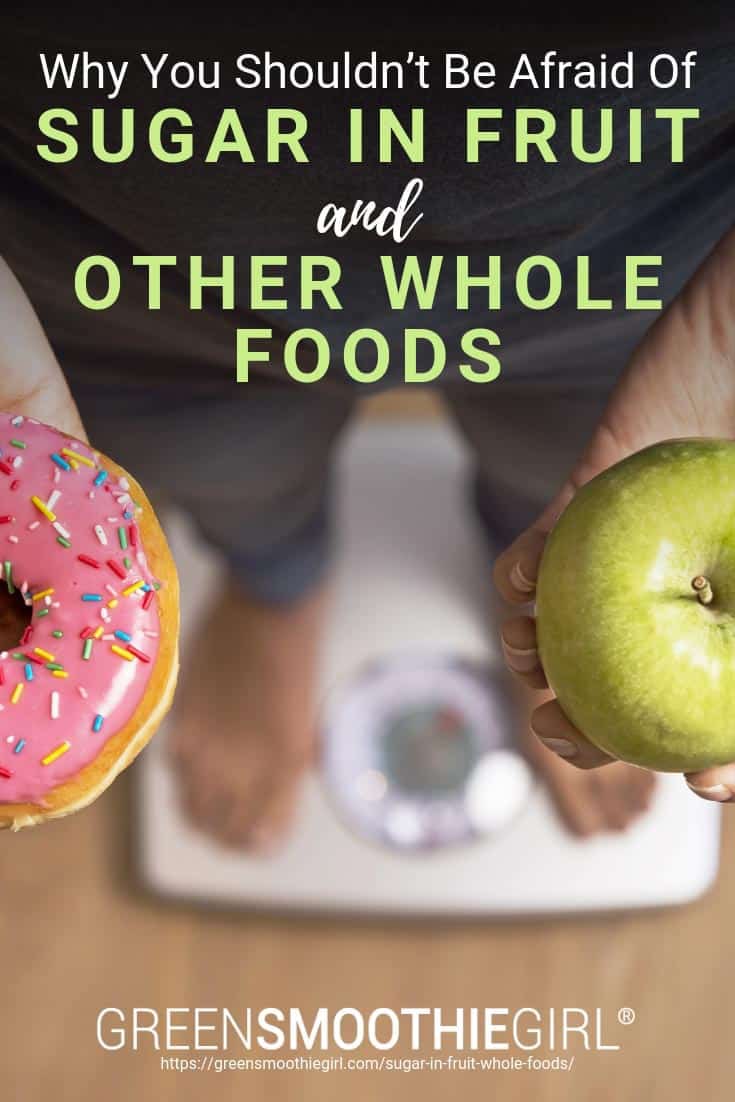Why You Shouldn’t Be Afraid Of Sugar In Fruit And Other Whole Foods

Many years of diet advice has trained us to avoid sugar at all costs and to feel guilty about consuming it whenever we slip.
Sugar-free snacks and sugar-free desserts all replace sugar with ultra-processed ingredients and have negative health impacts of their own.
But would you believe me if I said sugar is GOOD? And also, carbohydrates are good.
If the sugar is found in the package of a whole, natural plant food such as fruit, vegetables, grains (many don’t contain gluten!), starches like potatoes, sweet potatoes, rice, corn, and beans — these “sugars” are part of a package that is highly nourishing, and a great deal of scientific evidence shows it to be good for you!
In this post:
- The Problem With Sugar
- Refined Sugar vs. Whole-Food Sugar
- Dangers of Refined Sugar
- Why You Shouldn’t Be Afraid of Sugars in Whole Foods
- Vitamins and Minerals Commonly Found in High-Sugar Fruit and Other Whole Foods
I actually eat sugar (and carbohydrates) all the time—as does every long-living, disease-resistant population currently alive on the Earth!
But it is the right kind of sugar, the forms that won’t damage your health: the natural sugars found in whole plant foods.
The Problem With Sugar
The average American consumes 57 pounds of added sugar every year1.
All that sugar is digested pretty quickly, so it ends up in your bloodstream almost right away.
This heavy influx spikes your blood sugar and signals your pancreas to secrete insulin, the hormone that regulates blood sugar by delivering it into cells.
Insulin release is a natural response to eating, but the more sugar you eat, the more sugar goes into your blood, and the more insulin needs to be released.
This cycle leads to massive inflammation throughout the body, which can set off a cascade of health problems.
Chronically high blood sugar is linked to numerous health issues, including:
- Diabetes
- Heart disease
- High blood pressure
- High cholesterol
- Depression / anxiety
- Fatigue
- Cancer
- Fatty liver disease
It can also make other issues you’re experiencing worse, like making acne flare up, joints ache, skin age faster, or weight harder to lose.
But there are different types of sugar, and it’s only the kind you’ll find in processed foods that can lead to these health problems.

[Related: Wheat Is Good For You! (But Not How You’re Eating It)]
Refined Sugar vs. Whole-Food Sugar
We need to distinguish the different types of sugar in order to effectively nourish ourselves.
- Refined sugar is the white, granulated table sugar you know very well, the one you stir in your coffee and bake cookies with. It can also be high fructose corn syrup (HFCS), which is what you’ll find in many, if not most, sugar-containing processed foods on the grocery store shelves. You’ll also find refined sugars listed as cane sugar, dextrose, maltose (anything ending in -ose), etc.
[Related: How to Identify Hidden Sugars in Your Food]
- Natural or whole-food sugar is just what it sounds like: sugar that occurs naturally in whole foods. Whole-food sugars come from ingredients like dates and other fruit (fresh or dried), starchy vegetables (potatoes, squash, etc.), and grains. They also come with their fiber still intact, whereas refined sugars have had the fiber stripped away.
Dangers of Refined Sugar
As you can see, there are a lot of health problems associated with chronically high blood sugar. Let’s go a little more in depth to see how exactly refined sugar affects the body:
- Sugar can have a negative effect on your immune system. A 2014 study published in the Journal of Immunoassay & Immunochemistry found that sugar suppressed the body’s ability to defend against threats to the immune system, which could leave you susceptible to disease and bacterial infection2.
- Sugar can cause behavioral problems in children. Hyperactivity, aggression3, concentration problems4, and more—all things you can expect when your kids load up on refined sugar. This is a hotly-debated topic in pediatrics, but do you really need a doctor to tell you how your kids will react to eating candy? You’ve seen it with your own eyes!
[Related: 9 Ways To Get Kids To Drink Healthy Green Smoothies]
- Sugar damages the kidneys. According to the National Kidney Foundation, sugar does not typically pose a problem if consumed in moderation, but when blood sugar gets too high, it could cause damage, especially in diabetics5. Excess sugar will come out in urine, which can damage the kidneys’ blood vessels as well as their ability to filter out toxins in your blood.
- Sugar increases harmful cholesterol and decreases good cholesterol. Cholesterol protects our cells from toxins, and the more toxins we eat, the more cholesterol has to build up to keep them out. There are two types in our bodies: the good kind (HDL) and the bad kind (LDL). It’s been found that added, refined sugar intake can increase the bad and decrease the good6—the opposite of what we want!
- Sugar can cause copper, chromium, calcium, and magnesium deficiencies. All of these nutrients are critical for blood pressure and blood sugar regulation7. When your blood sugar is high, your body uses these vitamins and minerals to help get it back in balance. When it’s chronically high? Then you’re on the road to chronic nutrient deficiencies.
- Sugar can lead to cancer of the breast, ovaries, pancreas, colon, and rectum. Remember that part about sugar suppressing the immune system? Cancer is a potential result down that path, and sugar has been linked to an increased risk of breast cancer8, ovarian cancer9, pancreatic cancer, and colorectal cancer10, among others. Not only that, but for cancer patients, sugar can fuel the growth of cancer cells11.

- Sugar can weaken eyesight. Have you heard of diabetic retinopathy? This is a category of vision disorders that can be brought on by diabetes, including macular edema, which causes macular fluid to leak in the eye and blur vision. There is also proliferative retinopathy, in which blood vessels leak into the eye, or glaucoma, a condition that diabetics have a heightened risk of developing. Elevated blood sugar can thus weaken your vision over time12.
- Sugar can cause hypoglycemia13. Hypoglycemia is the fancy name for low blood sugar. How can you have low blood sugar if you’re eating sugar? Your body may be producing more insulin than needed, or if you have diabetes, you may be using too much insulin after your meals. Its job is to get glucose (blood sugar) out of the blood and into your cells, so if there’s too much, your blood sugar will end up low. On the opposite end of the spectrum, chronically high blood sugar can cause adrenal fatigue, which can then lead to issues properly regulating blood sugar. A vicious cycle!
[Related: Green Smoothies For Diabetes: Mistakes, Tips, and Recipes]
- Sugar can produce an acidic stomach. Sugar creates an acidic environment. Just think of your dental hygiene. We brush our teeth after eating sugar because if we let it sit there, bacteria can eat it and create acid, which pulls minerals out of our enamel and causes cavities. Now think about what that sugar is doing sitting in your stomach and making its way through your body. Sugar is an acid-forming food, and acidity in the body is the opposite of what we’re striving towards. The more alkaline, the better.
- Sugar can increase the risk of coronary heart disease. Even if you aren’t overweight, a high-sugar diet will make you more likely to die of heart disease. Sorry to be a Debbie Downer, but the numbers don’t lie. In a major study published in JAMA Internal Medicine, researchers found those whose sugar intake was 25% or more of their daily calories were over twice as likely to die of heart disease compared to participants who took in no more than 10%14.
- Sugar can lead to alcoholism, particularly in those who are prone to emotional eating, according to the Addiction Hope recovery organization15. Soothing one’s self with sugar is a very common coping mechanism, and there can be a whole lot of sugar in alcoholic cocktails—and guess which one has a faster effect on the body? That’s right. While our food is absorbed in the small intestine, alcohol can have near-immediate effects because it can absorb into your body through your stomach lining before it’s even digested. If you’re addicted to sugar, there’s a strong chance that alcohol may become an issue as well.
[Related: How To Break Your Sugar Addiction In 4 Days]
- Sugar can cause fluid retention. That bloating you experience after eating a lot of sugar? It might be caused by insulin resistance, which can happen over time if you have constantly fluctuating blood sugar levels. Insulin resistance means your body isn’t using this hormone properly, and if it’s secreted without being able to do its job, your insulin levels remain high. This will make you retain sodium by increasing the reabsorption of sodium in the kidneys, and thus fluid16.
- Sugar can cause headaches, including migraines. While certain mineral deficiencies can cause headaches and migraines (like copper, which can be the result of overindulging on sugar), the pain can also come from hypoglycemia. Adding to what I mentioned above, eating high-sugar foods can cause insulin to be overproduced, which will quickly lead to low blood sugar and a potential headache. This is known as reactive hypoglycemia17.
- Sugar increases the risk of Alzheimer’s Disease. Have you heard about Type III Diabetes? That’s the new name for Alzheimer’s in the medical community18, which is a condition linked to inflammation. What can cause that inflammation? You guessed it. According to the National Institute on Aging, this inflammation “adds to vascular problems in the brain,” and “it appears that Alzheimer’s is both a cause and consequence of vascular problems in the brain.”19
- Sugar stresses the pancreas, causing damage. The pancreas is where insulin is produced, and constantly spiking blood sugar taxes the organ by continuously stimulating it to secrete insulin. Diabetes develops when the pancreas isn’t able to produce enough insulin the keep up with the amount of sugar in the blood. A stressed out pancreas can’t efficiently do its many jobs, such as glucose metabolism and aiding in digestion.
- Sugar increases the amount of fat in the liver, known as fatty liver disease. Harvard Medical School notes that a likely cause is insulin resistance, which we’ve already covered as a result of chronically high sugar intake20. While there aren’t many symptoms aside from a little sluggishness, if left to progress, it can lead to further damage. Fatty liver disease is also linked with an increased risk of heart attack and stroke, according to Harvard.

- Sugar can cause kidney stones. Fructose is one of the worst sugars out there—it’s triple the amount of glucose. Aside from being very taxing on the liver, it can cause uric acid production and thus the formation of kidney stones, according to a 2019 study21. Not only are they painful, but kidney stones can lead to chronic kidney disease if you’re not careful about minding your diet.
- Sugar makes multiple sclerosis symptoms worse. MS is a disease of the central nervous system that often causes debilitating fatigue. Because excess sugar consumption can also lead to fatigue, it’s advised that those dealing with MS stay away from high-sugar foods.
[Related: 19 Sugar Substitutes: The Good, The Bad, and the Ugly]
Why You Shouldn’t Be Afraid of Sugars in Whole Foods
The fiber helps keep blood sugar balanced.
Natural sugar will still impact your blood sugar levels, as any food you eat will.
But when sugar is in its whole-food form, meaning it hasn’t been stripped of its fiber, it enters the bloodstream at a slower pace and doesn’t require so much insulin to process it all, so blood sugar rises a normal amount.
On the other hand, refined-sugar ingredients like granulated sugars and syrups don’t have that fiber, so it impacts blood sugar immediately.
This is where it gets problematic, because as I mentioned, blood sugar imbalances are associated with a whole host of health conditions.
It comes with extra nutrition.
Refined sugars are generally present in processed foods, which typically are lacking in nutrition.
Whole foods containing natural sugar bring with it important vitamins and minerals that help keep your body healthy and protect against disease and infection (more on that below).
These nutrients also help your body in the process of digesting your food, so if the food you’re eating is low in nutrients, you are contributing to possible deficiencies.
Refined sugar is linked with cancer.
Refined sugars, on the other hand, have been associated with various cancers, as there really is no benefit to them nutritionally and it’s been found to actually fuel cancer cells that are present in the body22.
Vitamins and Minerals Commonly Found in High-Sugar Fruit and Other Whole Foods
Eating whole fruits and other foods containing natural sugar is a reward in itself simply for the delicious taste.
And, these foods come with plenty of incredible nutrients that make eating fruit (or other high-natural-sugar whole foods) worth it.
Here are a few of the most important:
- Vitamin C: Our bodies aren’t able to make or store Vitamin C, so it’s very important that we get it from our diet (and not from ascorbic acid pills!) so that it can support our immune system. Citrus fruits are quite high in this vitamin!
- B vitamins: There are several kinds of B vitamins, but in general, they support our energy production as well as nerve function, hormone health, proper detoxification, and formation of red blood cells. You’ll find these vitamins in whole grains and legumes, as well as citrus, bananas, avocados, and cantaloupe.
- Vitamin A: This vitamin is fat-soluble, meaning it is more bioavailable when eaten with a good source of healthy fat. Vitamin A is found in many orange vegetables like carrots, sweet potatoes, and squash. Roast them with coconut oil to absorb more of their nutrients.

- Antioxidants: Many fruits, especially the darker berries like blueberries and blackberries, are high in antioxidants, meaning they help fight off free radicals. Not a bad tradeoff for all that sweetness! Some of the vitamins listed above also have antioxidant properties, and you can also find them in whole grains.
- Phytonutrients: Phytonutrients are protective plant chemicals (naturally made). If they protect the plant, they’ll protect you too! For instance, onions, which are naturally sweet, have more phytonutrients the more pungent the flavor is, and tomatoes contain lots of phytonutrients within their seeds.
- Enzymes: Enzymes are what help us properly break down the carbohydrates, fat, and protein in the food we eat. They are absolutely critical for digestion and assimilation, making sure that we get all the nutrients we’re supposed to from our diet.
If you pick something up at the store and eye the nutrition label for the sugar content, make sure you check to see where it’s coming from so you can see if it’s from natural or refined sources, and decide if it serves your health.
Read Next: How to Avoid Hidden Added Sugar in Your Food

References
- “How Much Is Too Much?” SugarScience (University of California San Francisco).
- Rahiman F, Pool EJ. “The in vitro effects of artificial and natural sweeteners on the immune system using whole blood culture assays.” Journal of Immunoassay & Immunochemistry. 2014;35(1):26-36. doi: 10.1080/15321819.2013.784197
- Prinz RJ, Roberts WA, Hantman E. “Dietary correlates of hyperactive behavior in children.” ournal of Consulting and Clinical Psychology, 48(6), 760-769. https://dx.doi.org/10.1037/0022-006X.48.6.760
- Goldman JA, Lerman RH, Contois JH, Udall Jr. JN. “Behavioral effects of sucrose on preschool children.” Journal of Abnormal Child Psychology. (1986) 14: 565. https://doi.org/10.1007/BF01260524
- “Sugar and Your Kidneys.” National Kidney Foundation.
- Welsh JA, Sharma A, Abramson JL, et al. “Caloric Sweetener Consumption and Dyslipidemia Among US Adults.” JAMA. 2010;303(15):1490-1497. doi:10.1001/jama.2010.449
- “Precious metals and other important minerals for health.” Harvard Health Publishing: Harvard Medical School. July 2018.
- Jiang Y, Pan Y, Rhea PR, Tan L, Gagea M, Cohen L, Fischer SM, Yang P. “A Sucrose-Enriched Diet Promotes Tumorigenesis in Mammary Gland in Part through the 12-Lipoxygenase Pathway.” Cancer Research. January 2016. Volume 76, Issue 1. DOI: 10.1158/0008-5472.CAN-14-3432
- Pizzuti L, et al. “GLUT 1 receptor expression and circulating levels of fasting glucose in high grade serous ovarian cancer.” Journal of Cell Physiology. May 2017 DOI: 10.1002/jcp.26023
- Kennedy S. “Does Sugar Cause Cancer?” Dana-Farber Cancer Institute. May 11, 2015.
- Peeters K, et al. “Fructose-1,6-bisphosphate couples glycolytic flux to activation of Ras.” Nature Communications. Volume 8, Article number: 922 (2017). https://doi.org/10.1038/s41467-017-01019-z
- “Diabetic Retinopathy.” American Optometric Association.
- “Hypoglycemia.” Mayo Clinic. Sept. 07, 2018.
- Yang Q, Zhang Z, Gregg E. “Added Sugar Intake and Cardiovascular Diseases Mortality Among US Adults.” JAMA Internal Medicine. 2014;174(4):516-524. doi:10.1001/jamainternmed.2013.13563
- “Addicted To Sugar? You May Be At Risk For Alcoholism.” Addiction Hope.
- Horita S, Seki G, Yamada H, Suzuki M, Koike K, Fujita T. “Insulin resistance, obesity, hypertension, and renal sodium transport.” International Journal of Hypertension. 2011;2011:391762. doi: 10.4061/2011/391762. Epub 2011 Apr 12.
- “Reactive Hypoglycemia - Hypos After Eating.” Diabetes.co.uk.
- de la Monte S, Wands JR. “Alzheimer's Disease Is Type 3 Diabetes–Evidence Reviewed.” Journal of Diabetes Science and Technology. 2008 Nov; 2(6): 1101–1113. doi: 10.1177/193229680800200619
- “What Happens to the Brain in Alzheimer's Disease?” National Institute on Aging. May 16, 2017.
- “When the liver gets fatty.” Harvard Health Publishing: Harvard Medical School. May 9, 2018.
- Johnson RJ et al. “Fructose increases risk for kidney stones: potential role in metabolic syndrome and heat stress.” BMC Nephrology. 2018 Nov 8;19(1):315. doi: 10.1186/s12882-018-1105-0.
- “Scientists make breakthrough in linking sugar to cancer growth.” Globalnews.ca. October 20, 2017.
Disclosure: This post may contain affiliate links that help support the GSG mission without costing you extra. I recommend only companies and products that I use myself.
Posted in: Whole Food














